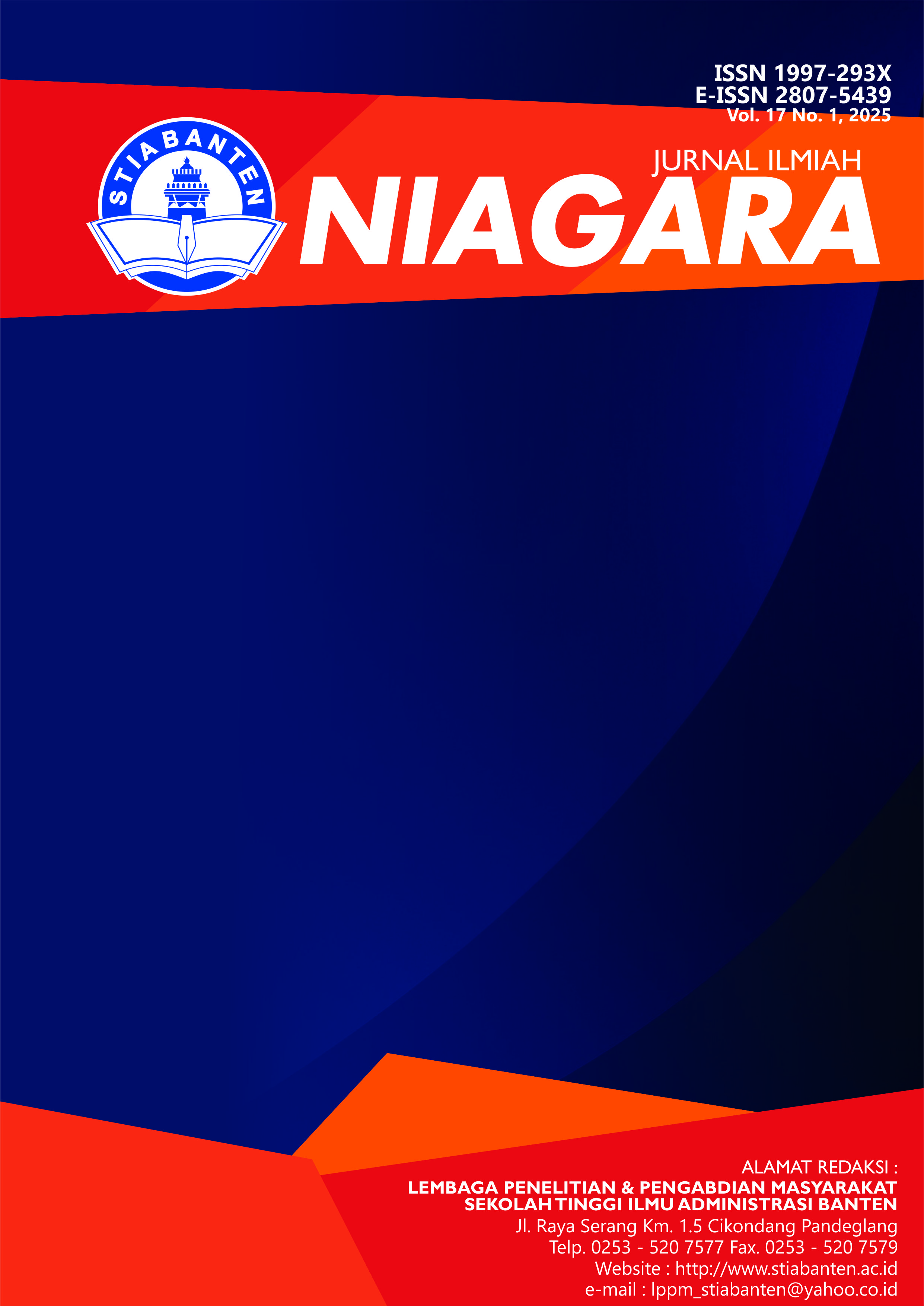EVALUASI PROGRAM PRAKTISI MENGAJAR TAHUN 2024 DI SEKOLAH TINGGI ILMU ADMINISTRASI BANTEN
DOI:
https://doi.org/10.55651/niagara.v17i1.224Keywords:
Evaluasi Program , Praktisi MengajarAbstract
The Teaching Practitioner Program is part of the Merdeka Belajar Kampus Merdeka program of the Ministry of Education, Culture, Research, and Technology of the Republic of Indonesia. The program is designed and managed jointly (collaboration) between Lecturers and Practitioners, so that students can obtain holistic learning that connects theory with field practice in order to master competencies, be better prepared to enter the world of work, and become future leaders in various career choices according to their respective interests and potentials. The purpose of the Evaluation of the Teaching Practitioner Program at the Banten College of Administrative Sciences with the CIPP Model has a rationale to ensure that higher education not only produces knowledgeable graduates, but also highly competent, relevant to industry demands and ready to contribute to the world of work. The ultimate goal of the teaching practitioner program, namely: 1) reducing the gap between the skills of college graduates and industry needs; 2) increasing the competitiveness of graduates in the global labor market; 3) building an adaptive and collaborative education ecosystem between the world of education and industry; and 4) providing students with direct insight into real challenges in the world of work and the latest emerging technologies. The results of the evaluation of the teaching practitioner program with the CIPP Evaluation Model, namely: (1) the results of the context evaluation show that program participants are able to understand the objectives of the teaching practitioner program with an assessment of 79% (very effective); (2) the results of the input evaluation show that the input aspect of the teaching practitioner program on the STIA Banten campus is assessed at 74% (very effective); (3) the results of the process evaluation show that the implementation dimension of the teaching practitioner program at STIA Banten is running at 71% (very effective); and (4) the results of the product evaluation show that the implications of the product are the fulfillment of the main performance indicator achievements (data indicators required in IKU 4: teaching practitioners on campus consist of data on educational history, certification, and work experience. and IKU Indicator 7: collaborative and participatory classes, related data attributes consist of courses and standards) at STIA Banten with an average indicator achievement of 76% (very effective).

Downloads
Published
How to Cite
Issue
Section
License
Copyright (c) 2025 NIAGARA Scientific Journal

This work is licensed under a Creative Commons Attribution 4.0 International License.


















